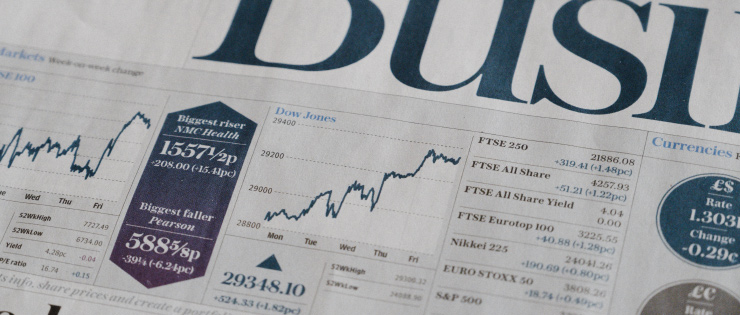Portfolio manager’s Letter September 2010
The elements govern the stock market 2010

Two elements govern the stock market 2010, the price of any common stock or other security at any given time. One is mathematical (earnings, revenues, assets and liabilities) the other is emotional (greed, fear, etc.). The relative importance of either of these components varies. The emotional component of security prices is always present, but seldom as strongly felt as it is currently.
Currently the fear factor is carrying a lot more weight than earnings, cash flow, or assets and liabilities. Mr. Market’s mood is the product of a seemingly endless series of commentators on television and in newspapers who seem convinced that the sky is falling. This mood is the more a reflection of what has gone on for the last two years than it is predictive of the future.
As the famous philosopher and economist Yogi Berra is said to have proclaimed “predicting is difficult, particularly if it is about the future.” For most economists the solution for this difficulty is to project the past into the future. This is a solution that we have found is not particularly helpful for managing portfolios.
The consensus seems to be that the stock market 2010 is floundering, even after flatlining for a decade because the economy is in the doldrums. Domestic heavy industry has all but disappeared. Real estate has crashed. The airlines, the automakers, the banks, all have gone to Washington demanding handouts from a government that, like the average citizen, is drowning in debt a fact that has not been ignored by the stock market 2010.
Bad news about stock market 2010 abounds, and amid all the doom and gloom, it’s easy to overlook the fact that the real engine of growth in the modern world is chugging right along. For the last thirty years the biggest economic story has been the rapid expansion of the middle class in emerging stock market countries. It is entirely possible that the next thirty years will see a continuation, or perhaps an expansion of this trend. This will bring hundreds of millions of new consumers to the global market place. Expanding markets mean expanding corporate profits. Sooner or later expanding profits will produce higher equity prices.
Unemployment is and always has been a lagging indicator. It does not forecast the direction of the economy; it may even be good for stocks. Besides the obvious fact that lower wage costs fatten the bottom line, it is also true that as long as unemployment remains high, there is intense political pressure in Congress and on the FED to maintain an expansionary monetary policy, so that, even though it seems counterintuitive, there is probably less risk in this stock market 2010 while unemployment remains high. The time that you really should start worrying about stock market 2010 risk is when the media stops worrying about unemployment.
So, slow growth produces an environment where corporate profits can expand faster than GDP. There has never been a better example of this than the current environment. In the second quarter, US corporate profits came in at $1.64 trillion which represent an increase of 39% over the previous year. That’s right: the GDP was up 1.6% for the three months but corporate profits were up 39%, and just to prove how efficient it is, the stock market 2010 declined in the second quarter.
You can make the argument that the above figures do not matter because earnings comparisons are benefiting from poor figures for 2009, but this $1.64 trillion is an all-time high for any quarter, with the previous high of $1.50 trillion posted in the 4th quarter of 2007. This may be a one-time bounce, but predictions are for a 32% gain in the fourth quarter, with an additional 10% – 12% gain expected for the first half of 2011. Don’t take the 2011 estimates too seriously because this is also about what they were predicting for the last half of this year.
“Don’t Fight the FED”
It seems to me like a good time to revive this old mantra from the seventies and eighties. There is currently a good deal of opinion to the effect that the FED is about out of bullets, but last I checked they still ran the printing press that makes dollars, and helicopter Ben was still in charge. The best argument I can find for the continuation of our slow recovery in the stock market 2010 is the fact that the FED has not felt it necessary to intervene much this summer.
A slow recovery may actually be preferable to a rapid one because without a buildup of inflationary pressure, the FED does not have to jerk the punch bowl for a while. Large US Corporations have never had it so good, profits have fully recovered to pre-recession levels, and the cost of capital is at historic lows. If a company wants to do acquisitions, the competition is for sale, cheap. Anti-trust has faded into obscurity, relevant only as a formality before the merger goes forward. Employment is an expense, and with this recovery, as with all of those that preceded it, an employer’s main concern is to control expenses. So employment lags as profits expand.
The current bull stock market 2010 began in March 2009. Though for a while this summer it appeared to be hanging on by its teeth, it is probably safe until there is pressure on the FED to start to tighten. This is not likely to occur prior to the November election. Beyond November we will enter the third year of the presidential election cycle, so it is likely that party in power will do everything it can to postpone any significant tightening until after the 2012 Presidential Election, and, indeed, beyond that, until unemployment returns to a comfortable level.
Blog Archive
